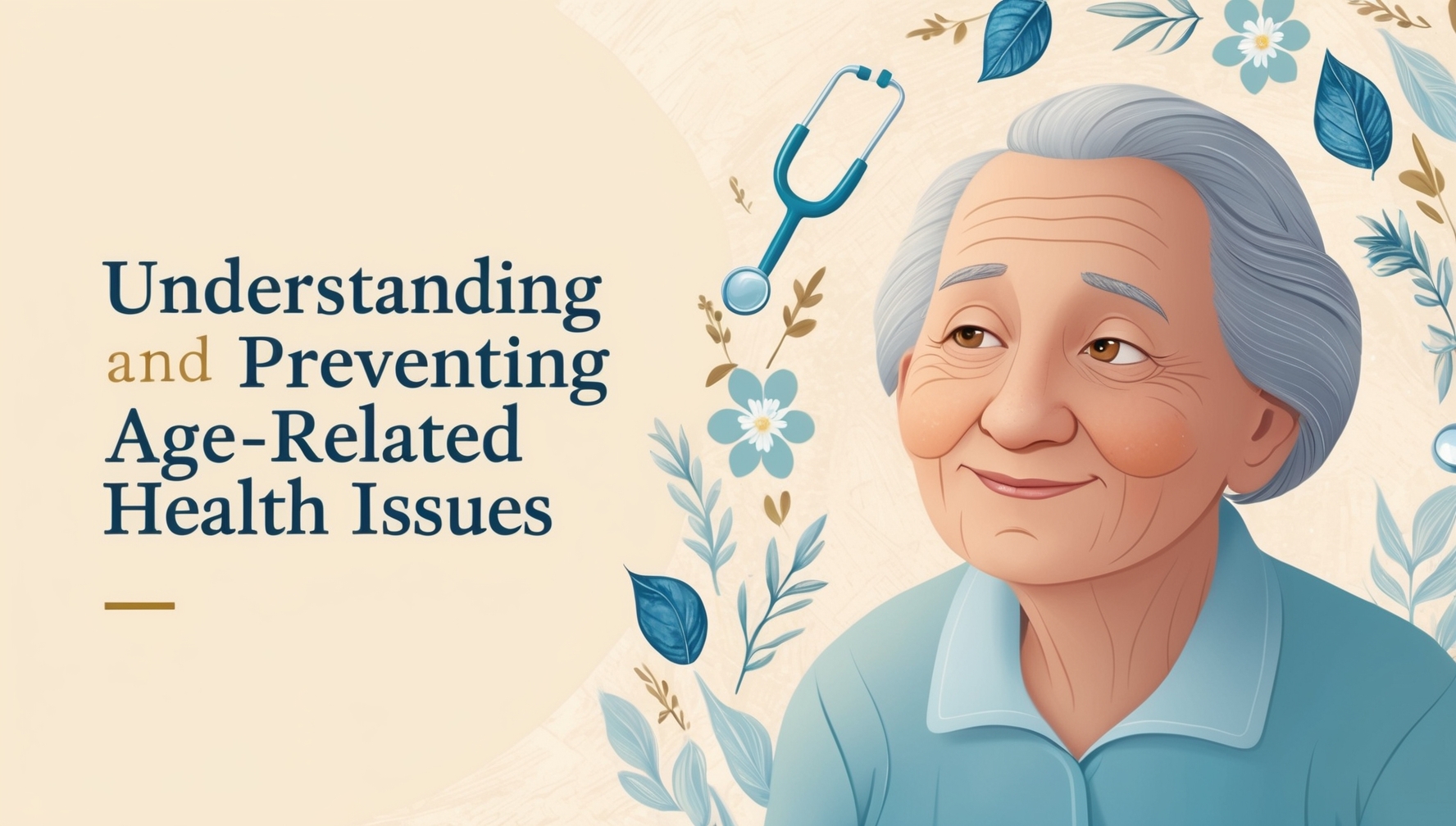As individuals age, they often face a variety of health challenges that can impact their quality of life. Understanding these age-related health issues and implementing preventive measures is crucial for maintaining health and well-being in older adults. This article explores common age-related health issues and effective strategies for prevention.
Common Age-Related Health Issues
- Chronic Diseases: Older adults are at a higher risk for chronic conditions such as heart disease, diabetes, and arthritis. These diseases can significantly affect mobility and overall health.
- Cognitive Decline: Conditions like Alzheimer’s disease and other forms of dementia are prevalent among the elderly. Cognitive decline can impact memory, decision-making, and daily functioning.
- Mental Health: Stress, anxiety, and depression can affect older adults, often exacerbated by social isolation, loss of loved ones, or chronic health issues.
- Falls and Injuries: Falls are a leading cause of injury among older adults, often resulting in fractures and decreased independence. Factors contributing to falls include muscle weakness, balance issues, and environmental hazards.
- Nutritional Deficiencies: Aging can affect appetite and nutrient absorption, leading to deficiencies in essential vitamins and minerals, which can impact overall health.
Preventive Strategies for Healthy Aging
- Regular Physical Activity: Engaging in regular exercise is one of the most effective ways to prevent age-related health issues. Activities such as walking, swimming, and strength training can enhance cardiovascular health, improve muscle strength, and reduce the risk of falls. The World Health Organization recommends at least 150 minutes of moderate-intensity aerobic activity per week for older adults.
- Balanced Diet: A nutritious diet rich in fruits, vegetables, whole grains, lean proteins, and healthy fats can help prevent chronic diseases and support cognitive health. The Mediterranean diet, for example, is associated with lower risks of cognitive decline and heart disease. Additionally, adopting a plant-based diet can offer significant benefits, such as reduced inflammation, improved heart health, and a lower risk of chronic diseases commonly associated with aging.
- Regular Health Screenings: Routine check-ups and screenings can help detect health issues early. Older adults should stay up-to-date with vaccinations, blood pressure checks, cholesterol levels, and screenings for diabetes and cancer.
- Mental Health Care: Addressing mental health is crucial for overall well-being. Engaging in social activities, pursuing hobbies, and seeking professional help when needed can improve emotional health. Incorporating techniques to manage stress, such as meditation, breathing exercises, and regular relaxation routines, can further enhance emotional well-being and resilience.
- Fall Prevention: To reduce the risk of falls, older adults should maintain a safe living environment. This includes removing tripping hazards, ensuring adequate lighting, and using assistive devices if necessary. Balance and strength training exercises, such as tai chi, can also improve stability.
- Social Engagement: Maintaining social connections is vital for mental health. Participating in community activities, volunteering, or joining clubs can help combat loneliness and promote emotional well-being.
- Cognitive Engagement: Keeping the brain active through learning new skills, reading, or solving puzzles can help maintain cognitive function. Engaging in mentally stimulating activities has been linked to a lower risk of cognitive decline.
Conclusion
Understanding age-related health issues and implementing preventive strategies can significantly enhance the quality of life for older adults. By prioritizing physical activity, a balanced diet, regular health screenings, and mental well-being, individuals can take proactive steps toward healthy aging. As the population ages, it is essential to foster supportive environments that promote health and independence for older adults, ensuring they can lead fulfilling lives.
